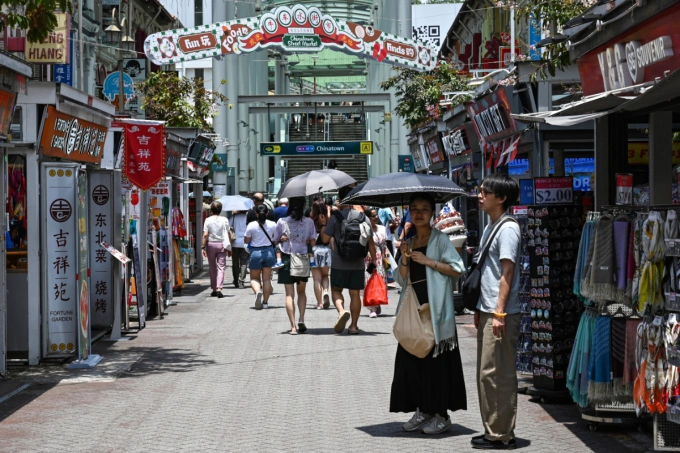Macau property magnate Loi Keong Kuong and his family have sold five shophouses in Singapore’s Chinatown at prices ranging from 5% to 20% below their acquisition costs from a decade ago.
Each of the estates, with approximately 69 years remaining on their leasehold tenures, comprises three stories, according to The Business Times.
The total sale value of the shophouses was approximately SGD50.7 million (US$39.45 million), lower than the SGD58.6 million the Lois paid to acquire them.
 |
|
People walk along a pedestrian street in the Chinatown district of Singapore on Oct. 7, 2024. Photo by AFP |
This means on average they suffered a 13% loss. Additional losses may stem from stamp duties and interest expenses on mortgages.
Observers suggested the Loi family may be reallocating its real estate portfolio, favoring investments in Macau and other markets.
In June, the family acquired The 13 Hotel in Macau for HKD600 million, according to Inside Asian Gaming. They plan to redesign and renovate the property to establish a new tourist landmark.
Between March and May 2025, Macau’s residential property price index dropped to 200.7 points, reflecting an 8.7% year-on-year decline, as reported by the Statistics and Census Service via Macao News.
This ongoing decrease aligns with a broader trend of falling property values in Macau. Ung Choi Kun, chair of the Association of Property Agents and Realty Developments of Macau, labeled the housing market’s conditions as “unfavorable” and suggested government intervention as a potential solution.
Loi Keong Kuong, a prominent real estate businessman in Macau, founded the Rio Hotel. In 2006, he entered into an agreement with Galaxy Entertainment to run a satellite casino at the Rio, which ceased gaming operations in 2022, prior to the implementation of Macau’s new gaming law.
Additionally, Loi contributed to the development of the luxury residential project “One Grantai” in Taipa, Macau, and purchased the Soul Boardwalk shopping centre on Australia’s Gold Coast for approximately US$12 million in 2018.





